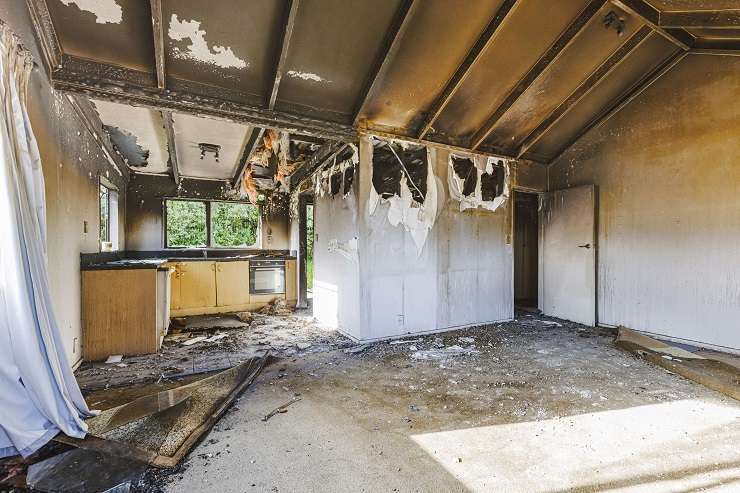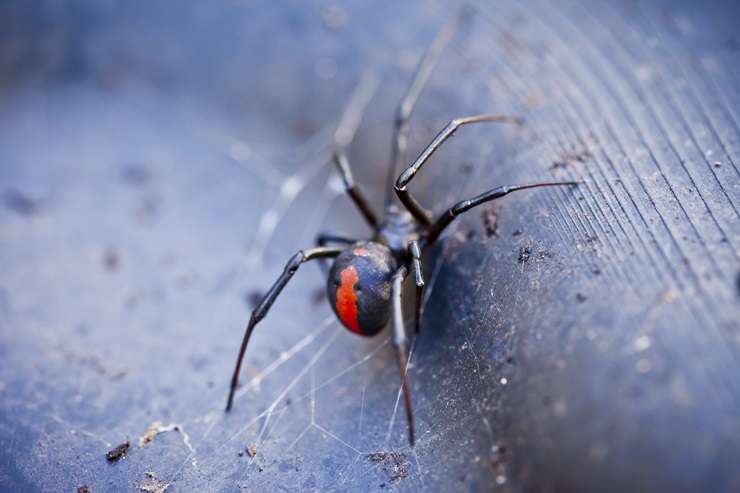Moths are currently causing a stir in the UK, with the daughter of a Georgian billionaire suing the former owner of their London mansion for more than £36 million (NZ$77m) over an infestation that destroyed their clothes and wine collection.
In New Zealand, real estate agents say fleas and ants are the biggest pests they come across when selling and appraising houses. Meanwhile, across the ditch, agents are dealing with snakes and spiders.
Ray White agent Rubal Singh told OneRoof infestations can be a problem, especially in some of South Auckland’s more run-down houses. Earlier this month, he had to race home for a shower after appraising a house that was riddled with fleas.
He said he now uses a special repellent spray on his shoes as a barrier. “It stops the fleas from jumping on you,” he said.
Start your property search
While pests are a problem, most of the buyers who target abandoned, infested properties didn’t care what condition they were in because they planned to do a complete overhaul anyway, he said.
Discover more:
- Auckland mansion linked to failed property developer sells for $650,000 loss
- Neighbours fall in love with each other - so who makes the first move?
- Single buyer scoops up entire floor of new luxury apartment block
Singh recently sold a fire-damaged house on Derrimore Heights, in Auckland’s Clover Park. The windows were broken, the walls and ceilings singed, and the gutters and downpipes melted. It was bought at auction for $430,000 by a property trader who thought he could bring it back to life.
Singh said: “People love that kind of stuff because they know they can flip it and make money out of it.”
Ray White Manukau co-owner Tom Rawson said most New Zealand pests could be picked up during a pre-inspection of the house, if not earlier, and addressed before the purchaser moved in.
“But that’s a flea bomb or an ant bomb. It’s not a big deal,” he said.
New Zealand sale and purchase agreements allowed for a dispute and for funds to be held back to solve a dispute, he said.

A fire-damaged house on Derrimore Heights, in Clover Park, sold earlier this year for $430,000. Photo / Supplied

Ray White agent Rubal Singh says he uses a special repellent spray when visiting run-down homes. Photo / Supplied
However. infestations are rarely a significant factor in formal complaints made to REA and the term has only appeared in five published decisions since 2017.
“We don’t have termites like in Australia. We are pretty lucky over here – we don’t have spiders, snakes, crocodiles any of that stuff. Fleas and ants would be the worst we have,” Rawson said.
Ray White Marsden business owner Avi Khan, whose agency sells Queensland properties, said the infestations they came across were a bit bigger than fleas. His agency was selling a house in Boronia Heights about five months ago when four snakes were discovered in the ceiling.
“It was insane,” he told OneRoof.
The owners had relocated out of the region and the house had been empty for some time, which seemed to have made it a magnet for the reptiles. “I think the rodents and snakes kind of sense that and they know what properties to go into and what not to.”
Khan said they arranged a snake catcher to remove the pest, but a lot of people didn’t want to buy it once they learned they had been in the roof.
“It’s like when people die in a property, sometimes snakes do leave a stigma in the property.”

Snakes can be a worrying problem for house buyers in remote parts of Australia. Photo / Getty Images

Poisonous spiders are also prevalent in the Australian housing market. Photo / Getty Images
He had also heard of tenants complaining about snakes coming up through the toilets, which raised concerns about them getting in through the plumbing.
Spiders tend to be less of a concern, he said. “There are spiders around all the time. Most of them are not harmless so people just swat them away.”
Khan said most Australians – especially those living near the bush – were resigned to the fact there could be snakes, spiders, kangaroos and maybe even crocodiles near their property and there was no guarantee they wouldn’t make it inside.
In Australia, the building inspection usually included a pest inspection so people knew what they might be dealing with and this would also pick up whether there were termites in the wood, which was relatively common.
Finding termites in a tree on the property didn’t stop people from buying, he said, but the bigger issue was whether they had penetrated the house. If a report found that they had, then the seller would usually get the house treated so the sale could still go ahead.

REA chief Belinda Moffatt urges buyers to do their due diligence. Photo / Supplied
REA chief executive Belinda Moffat said whether or not an animal or insect infestation needed to be disclosed in real estate transactions in New Zealand depended on whether it had created a defect in the property that is known (or ought to be known).
“Generally speaking, where an infestation is known by the licensed real estate professional to be present, this information should be disclosed by the licensee to a prospective buyer, in fairness to that person,” she said.
They may also want to disclose any action taken to treat a serious infestation, such as through an exterminator or their own measures, if there was a risk of re-occurrence or damage to the structure of the building, she said.
The REA pointed out there could be a hidden infestation that the owner was not aware of, particularly in areas such as wall cavities and beneath a house that was rarely accessed, so it strongly recommended that prospective buyers obtain a comprehensive report from an accredited building inspector. This would likely uncover issues such as borer which could cause damage to properties.
Moffat added there was nothing stopping a buyer asking a real estate agent if their vendor had experienced any infestation issues at the property and what they had done to rectify it.
- Click here to find properties for sale







































































